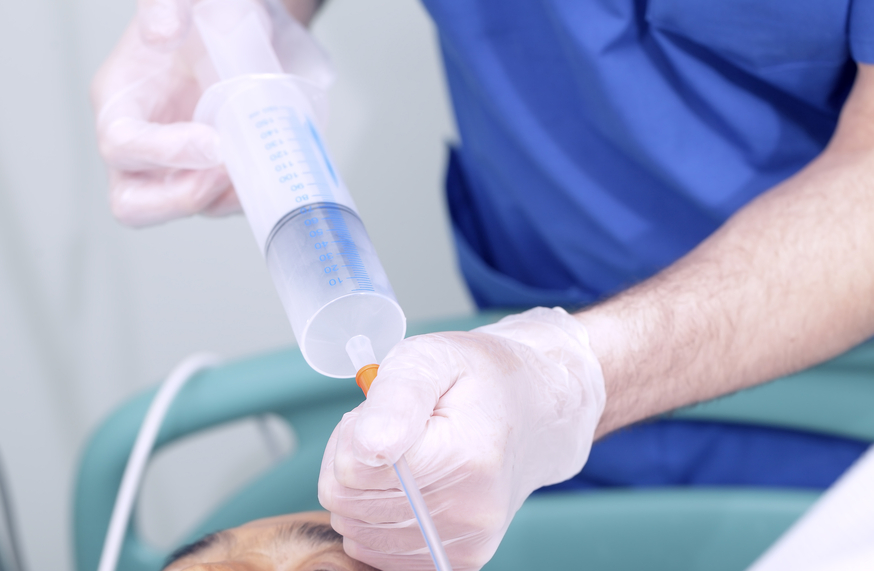Understanding Dementia Symptoms: A Comprehensive Guide
Discover the key signs and symptoms of dementia in our comprehensive guide. From early memory loss to behavioral changes and diagnostic tests, learn how to recognize dementia for better management and care.

Dementia is an umbrella term for a range of neurological conditions that primarily affect memory, behavior, and cognitive abilities. Recognizing the symptoms of dementia early can lead to more effective management and treatment options. Here, we dive into the most common dementia symptoms, aiming to provide a clear understanding for those seeking information.
Due to the increasing number of Alzheimer's diagnoses among an aging population, dementia symptoms are often confused with symptoms of Alzheimer's disease. While Alzheimer's disease emerges from damage specific to an overgrowth of proteins within neurons, dementia often occurs because of adverse medical conditions affecting parts of the body other than the brain. Eventually, however, these non-cognitive health problems will begin to affect the brain when blood flow to the brain is continuously inhibited.
Signs of Dementia
Early Symptoms of Dementia
Short-Term Memory Changes One of the hallmark symptoms of dementia includes changes in short-term memory. Individuals may struggle to remember recent events or conversations, have difficulty recalling names, or find following instructions, such as recipe directions, challenging.
Decision-Making Difficulties A decline in the ability to make decisions or exercise judgment is often noted in the early stages. This shift can be particularly noticeable in individuals who were once known for their decisive nature, especially in emergencies.
Behavioral Changes Dementia can lead to noticeable changes in behavior. Signs to watch for include increased depression, apathy, agitation, and uncharacteristic aggressiveness, which tend to emerge in the early to middle stages.
Personal Hygiene Neglect A lapse in personal hygiene is a common dementia symptom. Individuals may bathe less frequently, wear the same clothes repeatedly, or show a general disinterest in their appearance.
Types of Dementia and Associated Symptoms
Alzheimer's Disease
What are the Early Signs and Symptoms of Alzheimer's Disease?
Alzheimer's disease is the most common cause of dementia, a general term for memory loss and other cognitive abilities serious enough to interfere with daily life. Alzheimer's disease accounts for 60-80% of dementia cases. Here are the early signs of Alzheimer's dementia:
- Memory Loss: One of the hallmark symptoms, especially forgetting recently learned information, important dates, or events; asking for the same information over and over.
- Challenges in Planning or Solving Problems: Difficulty developing and following a plan or working with numbers. For example, they may have trouble following a familiar recipe or keeping track of monthly bills.
- Difficulty Completing Familiar Tasks: People with Alzheimer's often find it hard to complete daily tasks. They may have trouble driving to a familiar location, managing a budget at work, or remembering the rules of a favorite game.
- Confusion with Time or Place: Losing track of dates, seasons, and the passage of time. They may have trouble understanding something if it is not happening immediately.
- Trouble Understanding Visual Images and Spatial Relationships: For some people, having vision problems is a sign of Alzheimer's. They may have difficulty reading, judging distance, and determining color or contrast, which may cause problems with driving.
- New Problems with Words in Speaking or Writing: People with Alzheimer's may have trouble following or joining a conversation. They may stop in the middle of a conversation and have no idea how to continue or they may repeat themselves.
- Misplacing Things and Losing the Ability to Retrace Steps: A person with Alzheimer's disease may put things in unusual places. They may lose things and be unable to go back over their steps to find them again.
- Decreased or Poor Judgment: They may experience changes in judgment or decision-making, such as using poor judgment when dealing with money or paying less attention to grooming or keeping themselves clean.
- Withdrawal from Work or Social Activities: They may start to remove themselves from hobbies, social activities, work projects, or sports.
- Changes in Mood and Personality: The mood and personalities of people with Alzheimer's can change. They can become confused, suspicious, depressed, fearful, or anxious.
It is important to note that Alzheimer's is a progressive disease, where dementia symptoms gradually worsen over a number of years. In its early stages, memory loss is mild, but with late-stage Alzheimer's, individuals lose the ability to carry on a conversation and respond to their environment. If you or someone you know is experiencing any of these symptoms, it's important to consult a healthcare provider to get a thorough assessment and diagnosis.
Dementia with Lewy Bodies (DLB)
DLB is characterized by protein deposits in neurons, leading to symptoms such as vivid visual hallucinations, confusion, motor coordination issues, and difficulty accessing long-term memories. Dementia with Lewy bodies is the number one cause of dementia in senior citizens over the age of 70.
What are the Early Signs and Symptoms of Lewy Body Dementia?
Lewy body dementia (LBD) is a type of progressive dementia that leads to a decline in thinking, reasoning and independent function because of abnormal microscopic deposits that damage brain cells over time. Here are some early signs of Lewy body dementia:
- Cognitive Difficulties: Fluctuating attention and cognitive function are hallmark early signs, including problems with understanding visual information, planning, and processing.
- Visual Hallucinations: Individuals may experience vivid and often recurring visual hallucinations early in the course of the disease.
- Movement Disorders: Symptoms similar to Parkinson's disease such as a shuffling walk, stiffness, and tremors can be present.
- Sleep Disturbances: People may have rapid eye movement (REM) sleep behavior disorder, which can cause them to act out their dreams.
- Mood Changes: Depression and apathy are common, but anxiety and aggression can also occur.
- Impaired Autonomic Body Functions: Blood pressure, body temperature, urinary difficulties, constipation, and difficulty swallowing are early signs related to autonomic dysfunction.
- Cognitive Fluctuations: Unpredictable changes in concentration, attention, alertness, and wakefulness from day to day or throughout the day.
Frontotemporal Dementia
This type affects the brain's frontal and temporal lobes, leading to problems with long-term memory, auditory perception, and higher cognitive functions like motivation and planning.
What are the Early Signs and Symptoms of Frontotemporal Dementia?
Frontotemporal dementia (FTD) is a group of disorders caused by progressive cell degeneration in the brain's frontal and temporal lobes, which are essential for controlling language, behavior, and personality. Here are some early signs of frontotemporal dementia:
- Personality Changes: One of the most common early signs is a change in personality. Individuals may become socially inappropriate, impulsive, or emotionally indifferent.
- Behavioral Changes: There may be a noticeable shift in behavior, such as increased aggressiveness, loss of empathy, or inappropriate actions.
- Language Problems: Some types of FTD can cause a gradual decline in language abilities, including difficulty speaking, understanding, reading, or writing.
- Emotional Apathy: A loss of interest in activities, hobbies, or socializing can occur, along with a lack of motivation or initiative.
- Poor Judgment: There may be a decline in judgment and problem-solving skills, leading to poor decision-making.
- Repetitive Behaviors: Compulsive or repetitive behaviors, such as tapping, clapping, or smacking lips, are common early signs.
- Eating Changes: Sudden changes in dietary preferences, such as an increased craving for sweets or overeating, can be an early indicator.
It's important to note that the symptoms of frontotemporal dementia can vary greatly from one person to another due to the different areas of the frontal and temporal lobes that can be affected. If you suspect that you or a loved one is exhibiting signs of frontotemporal dementia, it is important to consult a healthcare
Vascular Dementia
Often a result of strokes or atherosclerosis, vascular dementia starts with mild memory lapses and progresses to severe confusion and hallucinations as blood flow to the brain diminishes.
What are the Early Signs and Symptoms of Vascular Dementia?
Vascular dementia, the second most common form of dementia after Alzheimer's disease, is caused by reduced blood flow to the brain, which can happen as a result of a stroke or other vascular conditions. Here are some early signs of vascular dementia:
- Impaired Judgment: Unlike Alzheimer’s disease, memory loss is not always as obvious in the early stages; instead, difficulties with planning, judgment, and problem-solving may be more apparent.
- Memory Problems: While not as prominent as in Alzheimer's, there may be early issues with short-term memory or retaining new information.
- Physical Symptoms: Early signs can include weakness or paralysis on one side of the body, balance problems, or a shuffling gait, reflecting the stroke or strokes that may have caused the dementia.
- Slowed Thinking: Processing thoughts and finding the right words can be challenging, leading to slower speech and difficulty in communication.
- Personality Changes: There may be noticeable shifts in personality, such as becoming more apathetic or uncharacteristically depressed.
- Mood Swings: Sudden changes in mood, such as bouts of confusion or agitation, can occur, often depending on the part of the brain affected.
- Attention and Concentration: Difficulty with concentration and tasks that require attention may be an early sign.
- Executive Dysfunction: Struggling with complex tasks that require organizing, planning, or following steps (like cooking a meal) is common.
Recognizing these early signs is important because, although vascular dementia is not reversible, treatment and lifestyle changes can help slow the progression and improve the quality of life. If you or someone you know is showing signs of vascular dementia, it's important to seek medical advice to obtain a proper diagnosis and discuss potential treatment options.
Conditions Mimicking Dementia Symptoms
Certain medical conditions can produce dementia-like symptoms, including:
Huntington's Disease:
Leads to mood changes, hallucinations, and unsteady gait.
Parkinson's Disease:
Causes physical movement difficulties and can include memory loss, confusion, and depression.
Multiple Sclerosis:
Impacts balance and cognitive functions like attention and problem-solving.
Reversible Dementia Conditions
Not all dementia symptoms are permanent. Conditions such as brain tumors, alcoholism, metabolic and endocrine disorders, and certain vitamin deficiencies can manifest as dementia but are often reversible with proper treatment.
Diagnostic Tests for Dementia
To determine the presence of dementia, physicians may employ:
Brain Imaging Scans: To detect tumors or growths.
Blood Tests: To check for vitamin deficiencies, chronic infections, medication overdose, and thyroid disease.
Cerebrospinal Fluid Analysis and EEG Tests: To examine brain activity. Psychological Testing: For depression and other psychological conditions.
Late-Stage Dementia Care
In the final stages, individuals with dementia require extensive assistance. They may need help with daily tasks, experience disrupted sleep patterns, and have difficulty recognizing familiar surroundings or people.
Conclusion
Recognizing dementia symptoms is crucial for timely and appropriate care. Whether you're a caregiver or concerned about a loved one, understanding these signs can guide you towards seeking professional help and support. By addressing each aspect of dementia, from early symptoms to late-stage care, we aim to enlighten and assist those impacted by this condition.
Sources
http://www.omnimedicalsearch.com/conditions-diseases/dementia-stages.html
http://www.ncbi.nlm.nih.gov/pubmedhealth/PMH0001748/
http://www.mayoclinic.com/health/dementia/DS01131/DSECTION=symptoms
You might also like this article:














